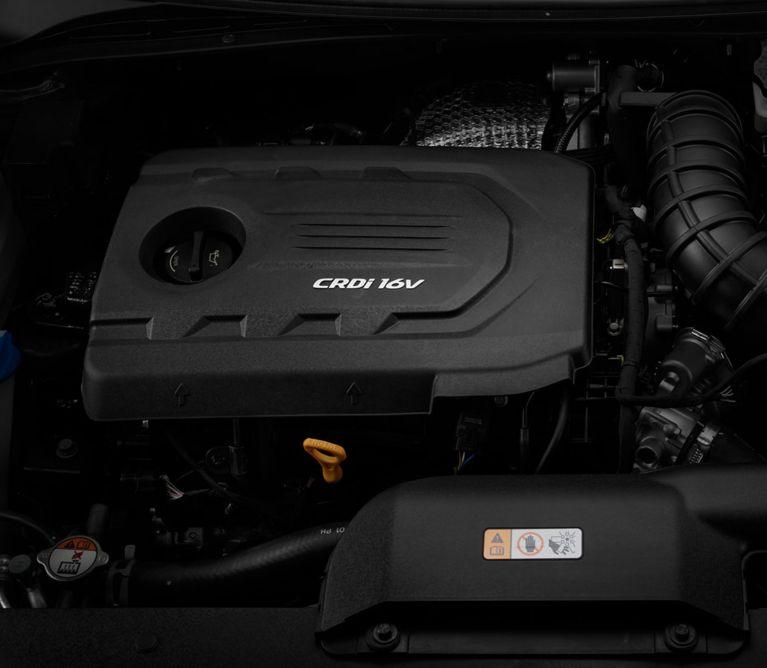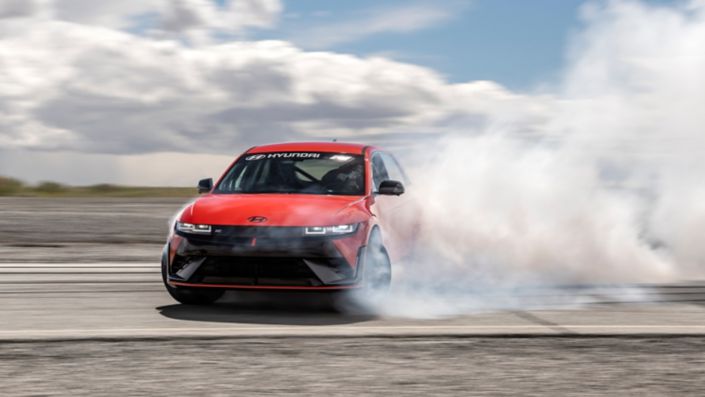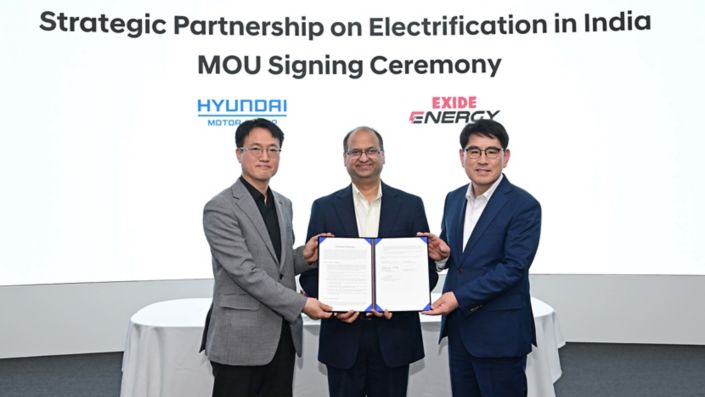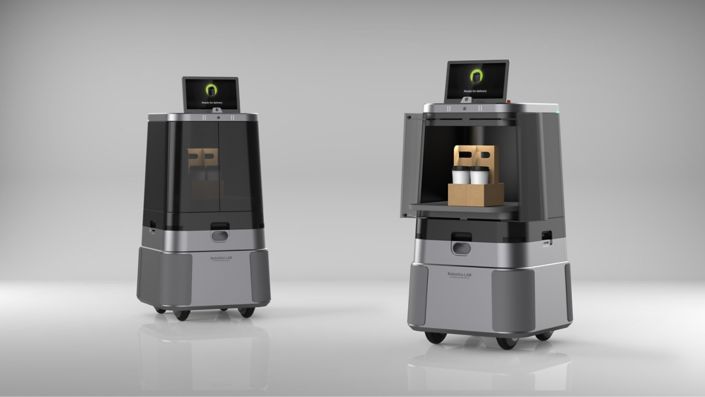- Upgraded engine line up for increased responsiveness and efficiency
- Low-end torque improvements enhance everyday usability
- Newly developed seven-speed dual clutch transmission (DCT) increases efficiency and driving comfort
Press material
-
Download
-
Images
The New i40 is available with a choice of four diesel or gasoline power units – all Euro6 compliant – with outputs ranging from 115 to 165 PS, covering over 80 per cent of the market.
The top-selling version of Hyundai‘s U-II 1.7-litre diesel engine now delivers more power (141 PS) and more torque (340 Nm) and is expected to continue to be the most popular engine choice with both private and fleet buyers, accounting for more than 50 per cent of sales. This engine’s high torque output from just 1750 rpm ensures a responsive drive (Fuel consumption combined: 5.1 - 4.3 l/100 km; urban: 5.2 - 4.8 l/100 km; extra-urban: 4.6 - 4.1 l/100 km; CO2 emissions combined: 134 - 114 g/km*).
The seven-speed DCT system offers drivers fully automatic operation (ideal for town driving) or sequential manual gear changes selected with the gear-lever or steering wheel-mounted paddles for greater driver involvement.
The 1.7-litre diesel standard engine generates 115 PS and a torque output of up to 280 Nm from as low as 1250 rpm. This engine comes with a 6-speed manual transmission in i40 wagon and can also be equipped with an ISG-system (Fuel consumption combined: 4.8 - 4.2 l/100 km; urban: 5.7 - 4.8 l/100 km; extra-urban: 4.3 - 3.8 l/100 km; CO2 emissions combined: 118 - 110 g/km*).
The seven-speed DCT system offers drivers fully automatic operation (ideal for town driving) or sequential manual gear changes selected with the gear-lever or steering wheel-mounted paddles for greater driver involvement.
The 1.7-litre diesel standard engine generates 115 PS and a torque output of up to 280 Nm from as low as 1250 rpm. This engine comes with a 6-speed manual transmission in i40 wagon and can also be equipped with an ISG-system (Fuel consumption combined: 4.8 - 4.2 l/100 km; urban: 5.7 - 4.8 l/100 km; extra-urban: 4.3 - 3.8 l/100 km; CO2 emissions combined: 118 - 110 g/km*).

New i40 offers a choice of Gasoline Direct Injection (GDI) engines. The 1.6-litre Gamma unit is carried over from previous generation i40, producing 135 PS and 164 Nm of torque, and is mated to a 6-speed manual (Fuel consumption combined: 6.6 - 6.1 l/100 km; urban: 8.5 - 7.7 l/100 km; extra-urban: 5.5 - 5.2 l/100 km; CO2 emissions combined: 153 - 140 g/km*).
The all-aluminium 2.0-litre ‘Nu’ GDI engine has been re-engineered to improve driveability and efficiency.
Maximum power and torque are slightly reduced, to 165 PS and 204 Nm (Fuel consumption combined: 7.5 - 7.1 l/100 km; urban: 10.4 - 9.4 l/100 km; extra-urban: 6.2 - 5.8 l/100 km; CO2 emissions combined: 176 - 165 g/km*), generated at 4700 rpm, this decrease has been implemented to provide better real-world driveability and to deliver maximum torque lower down the rev range. Buyers have a choice of 6-speed manual or automatic transmission systems.
In terms of environmental performance, New i40 wagon and sedan feature: Integrated Stop & Go (ISG), also available for the new DCT, low rolling-resistance tyres, an alternator management system (AMS) and a drag-reducing ‘active air flap’ in the front grille.
With these fuel saving technologies applied, the 1.6-litre Gamma unit emits CO2 emissions from 140 g/km, and returns fuel economy of 6.1 l/100 km*.
The all-aluminium 2.0-litre ‘Nu’ GDI engine has been re-engineered to improve driveability and efficiency.
Maximum power and torque are slightly reduced, to 165 PS and 204 Nm (Fuel consumption combined: 7.5 - 7.1 l/100 km; urban: 10.4 - 9.4 l/100 km; extra-urban: 6.2 - 5.8 l/100 km; CO2 emissions combined: 176 - 165 g/km*), generated at 4700 rpm, this decrease has been implemented to provide better real-world driveability and to deliver maximum torque lower down the rev range. Buyers have a choice of 6-speed manual or automatic transmission systems.
Eco credentials
In terms of environmental performance, New i40 wagon and sedan feature: Integrated Stop & Go (ISG), also available for the new DCT, low rolling-resistance tyres, an alternator management system (AMS) and a drag-reducing ‘active air flap’ in the front grille.
With these fuel saving technologies applied, the 1.6-litre Gamma unit emits CO2 emissions from 140 g/km, and returns fuel economy of 6.1 l/100 km*.
Back to New Hyundai i40 Overview
Consumption Data*
Gasoline Engines
1.6 GDi (135 PS): Fuel consumption combined: 6.6 - 6.1 l/100 km; urban: 8.5 - 7.7 l/100 km; extra-urban: 5.5 - 5.2 l/100 km; CO2 emissions combined: 153 - 140 g/km
2.0 GDi (165 PS): Fuel consumption combined: 7.5 - 7.1 l/100 km; urban: 10.4 - 9.4 l/100 km; extra-urban: 6.2 - 5.8 l/100 km; CO2 emissions combined: 176 - 165 g/km
Diesel Engines
1.7 CRDi (116 PS): Fuel consumption combined: 4.8 - 4.2 l/100 km; urban: 5.7 - 4.8 l/100 km; extra-urban: 4.3 - 3.8 l/100 km; CO2 emissions combined: 118 - 110 g/km
1.7 CRDi (141 PS): Fuel consumption combined: 5.1 - 4.3 l/100 km; urban: 5.2 - 4.8 l/100 km; extra-urban: 4.6 - 4.1 l/100 km; CO2 emissions combined: 134 - 114 g/km
*Depending on trim and tyre specifications.











